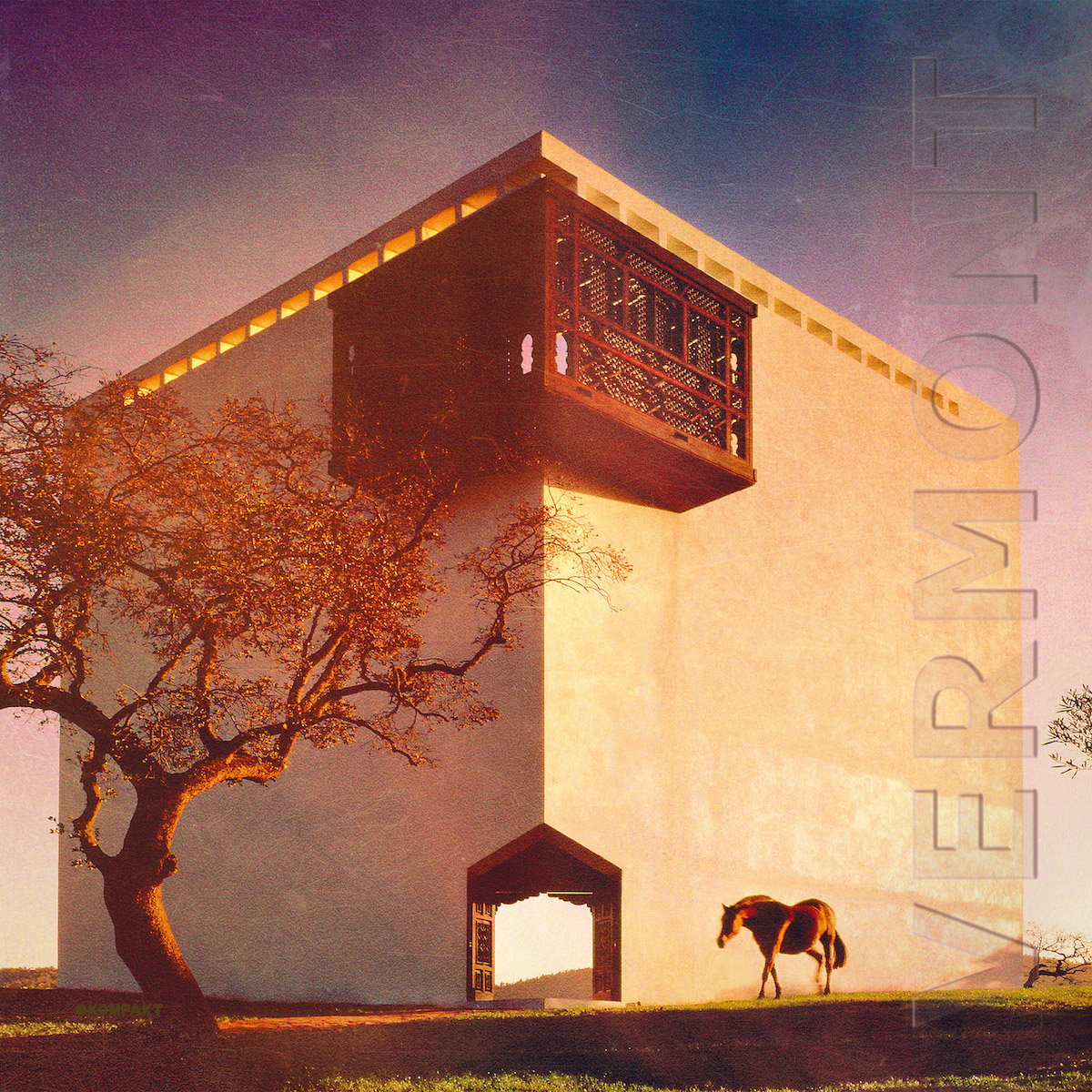Vermont II
Danilo Plessow and Marcus Worgull return to Kompakt for set of elegant ambience.

Three years on from their initial pairing, Danilo Plessow (the man known as Motor City Drum Ensemble) and Marcus Worgull once again take a break from their clubland duties for another session of synthesized dreamland lullabies. Much like the first Vermont effort, II serves up a nearly beat-free set of elegant ambience, with a sound that splits the difference between tightly-wound kosmische music and hazy neo-Balearica.
In a 2015 interview, Plessow described the making of their self-titled debut as “more like doing yoga” than his usual mode of production, and that shows in the results: as with yoga, Vermont’s sound—both on the debut LP and on II—is the result of disciplined approach to production; every chiming note, every sustained chord, and every effect is seemingly in its place. Yet, somehow, the result is a feeling of spaciousness and a thrilling sense of weightlessness. The arrangements are concise, and their instrumentation is never cluttered—but there’s a richness, almost a grandeur that runs throughout Vermont’s music.
That mix of simplicity and richness is evident in a track like “Dschuna,” with gentle squelches laid over pizzicato strings while a sedate series of ping-ponging, xylophone-esque chimes keep time; as the song ends, a gorgeous string section providing the song’s denouement. The spectral “Skorbut,” punctuated by synthetic squalls wails, is imbued with a widescreen aura, one that wouldn’t feel out of place in a John Carpenter–scored sci-fi flick. And on “Norderney,” fluttering synths are punctuated by plinking keys while an acoustic guitar (provided by Robbert van der Bildt, a.k.a. KAAP) plucks out a circular pattern, the tune’s eyes-to-the-sky melody resonating with the possibilities of an early-morning daydream.
It’s that kind of misty, evocative aura that’s another of Vermont’s defining features. The synth-horns and woodwinds of “Hallo Von Der Anderen,” along with its shimmering keys, conjure up images of a dew-drenched Eastern meadow; the plucked eighth notes, angelic Rhodes piano and understated pedal-steel work give “Ufer” the feel of a loved one’s embrace. Elsewhere, the imagery is a bit more diffuse. The descending bass of “Demut” patiently lays out an elegiac melody of heartbreak, while its quivering keys give hope that things will get better; the serene ambiance of “Wenik” conjures the expectation of a journey that’s barely begun.
If there’s any complaint to be made about II—and it’s a minor charge, to be sure—is that there’s almost too much shimmer and too much reverie to make any singular moments stand out. Unless one is listening closely, II’s songs can glide by like a benevolent mirage, not quite registering but still leaving an afterglow. That afterglow is exquisite, however—and by the time the stately bass, percolating chimes and celestial chords of album closer “Unruh” fade into the either, you’ll feel as though you’re awakening from the sweetest of dreams.

